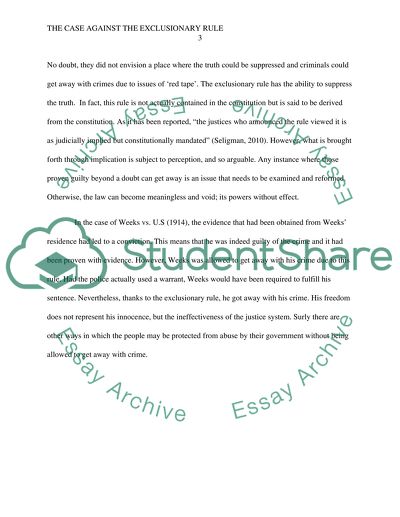Weeks v. United States Essay Example | Topics and Well Written Essays - 500 words. Retrieved from https://studentshare.org/law/1580533-weeks-v-united-states
Weeks V. United States Essay Example | Topics and Well Written Essays - 500 Words. https://studentshare.org/law/1580533-weeks-v-united-states.


